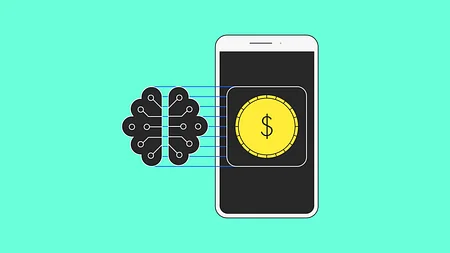Why are financial services brands fundamentally irrelevant for the most important moments in our lives?

Financial services brands are still fundamentally irrelevant for many of the most important moments of our life. But why is this?
This is taken from our Unfiltered newsletter. Subscribe now for a no BS, uncensored analysis of fintech news and hot topics delivered to your inbox each fortnight.
At 11:FS, we talk a lot about how people don’t really want banks. What matters are the things that money allows us to do (or not do). This is the same whether we’re speaking to individuals, family units, small businesses or even corporates.
Starting a new business. Celebrating Christmas. Going on holiday. Investing in a new office at work. Deciding to buy a house. Taking on new staff. Having a baby. Beginning to trade in a new market. The list of life events goes on.
These are all events that many banks align themselves with for marketing purposes (we’ve all seen the billboards and ad campaigns). And for many of these events, banks are undoubtedly key enablers. Offering a line of credit to a new business to help it get up and running or providing the savings account for our next holiday, for example. But how much of a difference are financial services brands really making to how successfully we navigate these moments and events?

Take Christmas, for example
It’s a truth fairly universally acknowledged that huge numbers of consumers spend the start of the new year trying to undo the damage they’ve done to their bank accounts over the festive period. The average UK adult spends £476 on presents alone, and debt charity StepChange estimated last year that it would take the average British consumer seven and a half months to pay off their Christmas debt.
Something is broken here.
Many of the common festive financial difficulties are exacerbated by a - completely reasonable - lack of foresight and planning.
I can’t help feeling that Christmas should be the kind of event that banks love. It impacts a lot of people around the world - more than 2 billion of them, in fact. It happens at the same time each year. Even in Covid times, many customers are still trying to find ways to safely recreate the experiences that make this event special to them. It’s consistent and predictable.
As an industry, there is so much more we could offer to help customers navigate Christmas financially. To go beyond a basic savings pot with a picture of Father Christmas on the front and start helping people to make contextual and data-led decisions.
Thinking beyond Christmas...
... how could this apply to other important events for consumers and businesses? There are many things that we do time and time again - allowing us to learn from our own behaviour - as well as all the events that may be new or a one-off to you, but others will have done before.
Last year, for example, I got married. I’ve not done it before (and I’m hoping I won’t be doing it again…) But it’s a tradition that, as a society, we do all the time and that a quick internet search will reveal we have plenty of data on. And it's an event where finance has a major part to play, with the average UK wedding costing £30,000 - almost half of the average British couple's combined annual salary.
Yet despite it being one of the most financially stressful events of my life so far, my bank was largely absent. An almost entirely passive presence, bar the occasional panicked notification making the unhelpful observation that my spending was higher than usual.
Of course, marriage isn’t for everyone, but the same rationale applies to multiple other areas of life. The key financial transition from being a student to entering the world of work, for example. After university, most banks simply switch you from a student to a graduate account and see that as ‘job done’, with no consideration for the upheaval many face in relocating and living within a new income.
Or the huge changes people face when starting a family - a pretty expensive event! The first year of parenthood can cost around £11,500, yet most banks provide very little real-life support and use the occasion purely for marketing purposes.
These are missed opportunities for financial services brands to help customers save time, reduce stress and become more efficient; to demonstrate relevance at key moments in our lives.
These are missed opportunities for financial services brands to demonstrate relevance at key moments in our lives.
But it seems the industry might finally be waking up to the fact that money matters most when it helps you accomplish something. And it’s the fintechs who - unsurprisingly - are leading the way with some of the most interesting initiatives:
I love how Digit in the US has introduced savings features which allow users to automatically move funds they’ve set aside to pay down their credit card and student loan debt into the creditor’s hands.
Planto in Hong Kong provides a ‘home planning’ service, blending together savings, forecasting and house searching.
More and more SME-focused fintechs (like Coconut in the UK) are helping businesses to accurately plan ahead for their tax commitments.
What do these providers have in common?
They’re all helping people achieve better outcomes in the most efficient and effective way possible.
Regulatory and technological evolution will continue to open up options for how we design and build experiences that help customers do more with their money. Open Banking initiatives are rolling out globally, often being refined and expanded in scope as they go. And the ever growing opportunities presented by Banking as a Service (BaaS) mean that more customer-facing brands can access the underlying capabilities needed to solve financial problems.
My unfiltered opinion
It’s an exciting but also unsettling time.
But the need for banks to help customers successfully navigate their financial lives also raises important questions about the commercial models of our industry.
We can’t ignore the fact that multiple key elements of our financial ecosystem still rely on profit from bad customer outcomes. So creating a commercially viable end-to-end offering that helps customers save time, reduce stress and increase efficiency will require significant restructuring for some in our industry.
It’s a big ask, but given the pace of change we’ve seen in the sector this year, I wouldn’t rule out things looking pretty different by next Christmas. Here’s to more banks we can bank on when life happens 🤝




